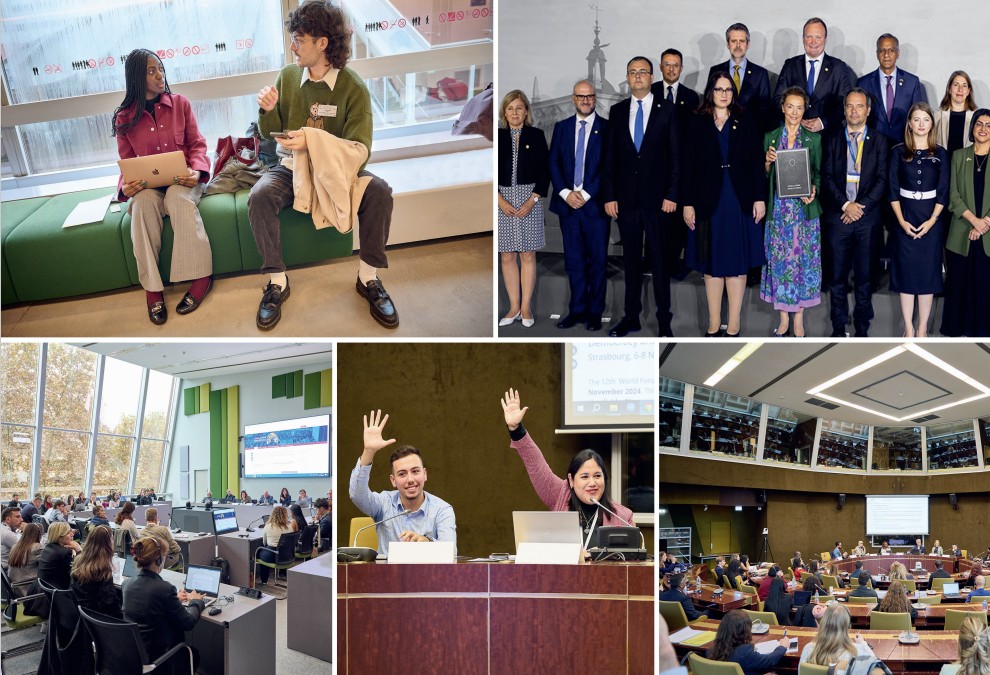Evaluation of Youth Perspective Integration in the Council of Europe
Over the course of six months, this study aimed to assess the extent to which and how the Council of Europe integrates the perspective of young people in its work, identify challenges and opportunities, and make recommendations for the way forward.
The study methodology included a literature review as well as extensive consultations (interviews, surveys and focus groups) with Council of Europe staff members, political delegations, and youth representatives.
Background
The Council of Europe has a long history of working with and for youth. Its Youth Department is a key source of expertise for the Organisation, while a well-established co-management system provides spaces for dialogue between youth and government representatives.
The Council of Europe’s long-standing commitment to youth has also resulted in greater youth engagement beyond youth-specific spaces, with many of the Organisation’s political bodies, committees and working groups increasing their efforts to work with young people.
In 2023, the Reykjavík Declaration created new momentum for young people within the Organisation, calling on the Council of Europe to further integrate a youth perspective in its work, to foster open dialogue and promote democracy and ultimately improve policymaking. A ‘reference framework’ is also being developed to translate the Reykjavík Declaration goals into an Organisation-wide approach to support the integration of a youth perspective.

Key Findings
This study gathers and presents learnings and insights from key Council of Europe and youth stakeholders.
Overall, the study found that the Council of Europe political bodies and internal structures have often pioneered new approaches to youth engagement, including models that are recognised as exemplars outside the Organisation.
However, the study also identified challenges to operationalising the integration of a youth perspective across a large and complex organisation such as the Council of Europe. Therefore, the following recommendations were made:
Our study identified the following six areas for further action:
- Adopting an overarching strategic approach to ensure the integration of a youth perspective across the Council of Europe, to be implemented through the upcoming reference framework.
- Supporting and encouraging opportunities for mutual learning between Council of Europe staff, representations, and youth through existing human capital.
- Strengthening quality assurance and access to supporting tools and materials, recognising the central role of the Youth Department in this, and guidance to operationalise the reference framework
- Establishing a principle of 360-degree feedback, for youth representatives to share their views and experiences and supporting the Council of Europe to communicate the outcomes to youth.
- Establishing the needs of diverse youth and supporting an evidence-based approach towards reaching and engaging youth in the context of gender mainstreaming and the human rights-based approach
- Developing an action plan for implementing the priorities in the reference framework, and ensuring that roles and responsibilities are agreed within the Council of Europe.
The final report from the study can be accessed here.

9 April 2025
2 minute read
Sectors
Services
Key Experts
Andrzej Zurawski
Senior Consultant
Flavia Colonnese
Senior Research Manager
Laurie Day
Technical Director



